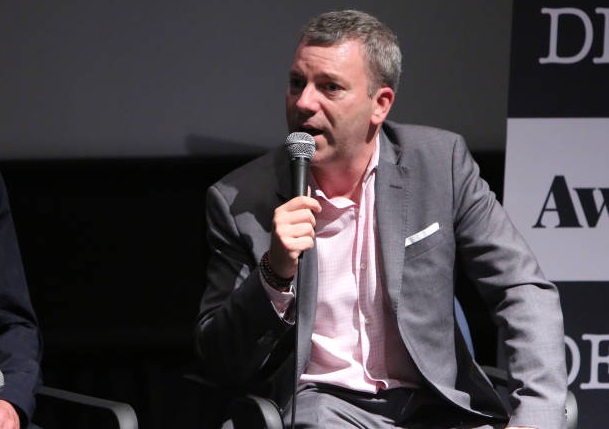
By Richard Pagliaro | @Tennis_Now | Monday, November 11, 2024
Photo credit: David Buchan/Getty
Tennis Channel has sidelined Jon Wertheim indefinitely citing unprofessional conduct.
The Santa Monica-based TC announced it has suspended long-time commentator Jon Wertheim after his critical comment about Wimbledon champion Barbora Krejcikova's physical appearance.
More: WADA Appeals Sinner's Doping Case, Seeks Ban for World No. 1
The network says Wertheim, who issued an apology on social media, has also apologized to two-time Grand Slam singles champion Krejcikova, widely regarded as one of the most humble major champions.
"Jon has dedicated his career to shining a light on and growing this sport and has been a valued member of our family and the tennis community," TC said in a statement. "That said, Tennis Channel holds its employees to a standard of respectfulness for others at all times, a standard that was not met in this moment."
Wertheim mocked Krejickova's forehead during what he said he thought was a rehearsal for the network's TC Live show.
"Who do you think I am? Barbora Krejcikova?" Wertheim said. "Look at the forehead when Krejcikova and Zheng take the court.”
The mockery prompted outrage and pushback from fans and Krejcikova herself.
“As an athlete who has dedicated herself to this sport, it was disappointing to see this type of unprofessional commentary," Krejcikova said. "This isn’t the first time something like this is happening in sports world. I’ve often chosen not to speak up, but I believe it’s time to address the need for respect and professionalism in sports media.”
The WTA issued a statement supporting Krejcikova's call for respect.
“There is no place in sport for inappropriate comments about female athletes. The WTA stands in full support of Barbora’s powerful call for respect," the WTA said in a statement. "This should be the norm for all women in all working environments. Respect is due as a right, not a privilege to be earned."
Wertheim apologized over social media for "deeply regrettable comments" and said his forehead criticism came during what he believed was a non-televised rehearsal.
"During a Tennis Channel studio show on Friday, I made some deeply regrettable comments off-air," Wertheim said. "I acknowledge them. I apologize for them. I reached out immediately and apologized to the player.
“What happened? I joined the show by Zoom. In rehearsal, we were shown a graphic of a player who had just competed. It showed her at an angle that exaggerated her forehead.
"A few moments later, I was told to frame up my Zoom. I looked at the low camera angle and joked that it made my forehead resemble the photo of the player in question. Someone in the control room chimed in and I bantered back. Though this was a private rehearsal, this exchange inadvertently, and without context, made it to live air.
“I realize: I am not the victim here. It was neither professional nor charitable nor reflective of the person I strive to be. I am accountable. I own this. I am sorry.”
Credit Jon Wertheim for owning his comment and apologizing.
In tennis and in life, we all make unforced errors.
Still, sometimes makes you wonder if this is point of focus for some analysts when the camera is rolling, imagine what's said when the camera is not rolling?
A friend of mine, who is a coach, said "What's the big deal? I've heard a lot worse from players and commentators."
Perspective is important here. One snarky shot said in what he thought was a rehearsal setting obviously does not diminish decades of great work 60 Minutes correspondent Jon Wertheim has done putting tennis in the international spotlight.
Let's be honest: lately it feels like we live in a culture where it's cool to be cruel.
It's admirable both Tennis Channel and Wertheim have filed insightful reports on players' mental health challenges in recent years, spotlighting stars ranging from Naomi Osaka to Bianca Andreescu.
Still, when you listen to players who have struggled with mental health issues they often cite two particular sources of pain:
1. Social media trolls who mock their appearance, often their weight.
2. Irate gamblers, who, in extreme cases, have posted ugly threats online after losses.
So on the one hand TC spotlights a very real issue in the sport with nuance and understanding with its repeated reports on mental health issues.
Yet on the other hand a top TC analyst is mocking a Grand Slam champion's appearance during the WTA Finals and the network itself is force-feeding viewers gambling odds before during and after every big match it televises.
Is there a double standard in that picture or at least a disconnect from words and deeds?
Or am I just reading too much into it?
Tune in to TC and decide for yourself.